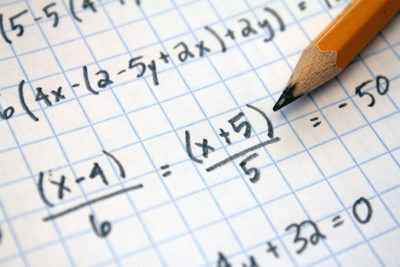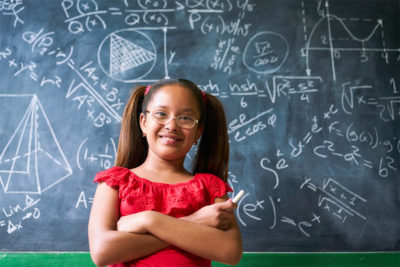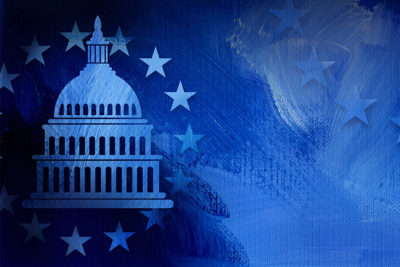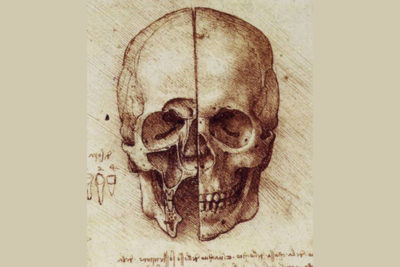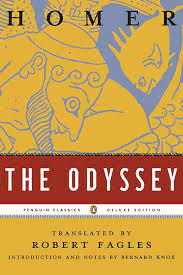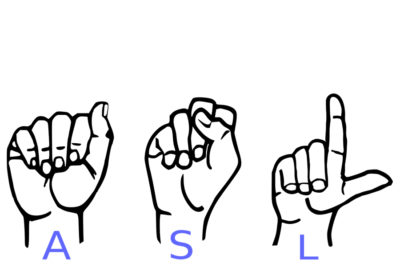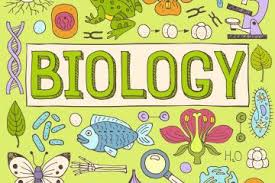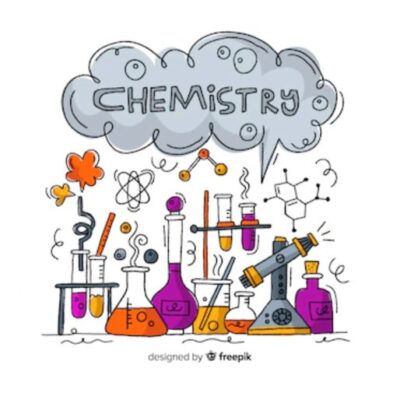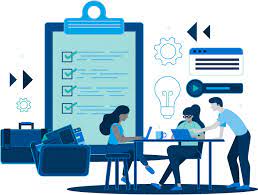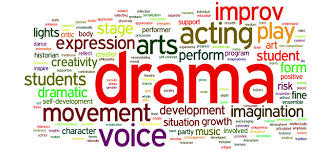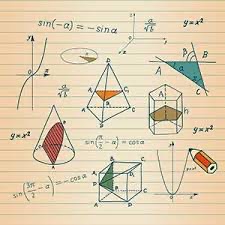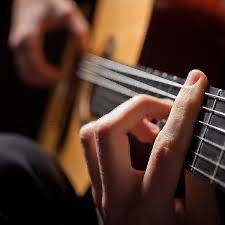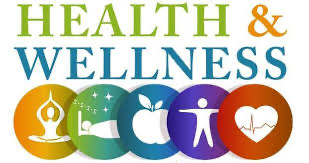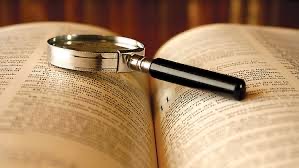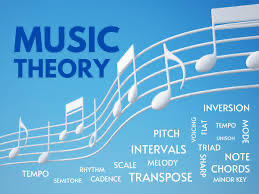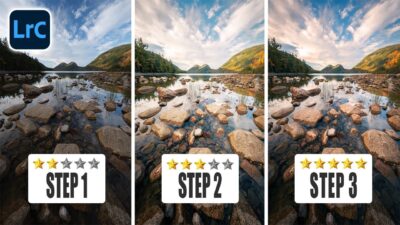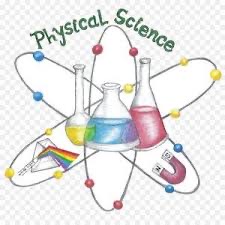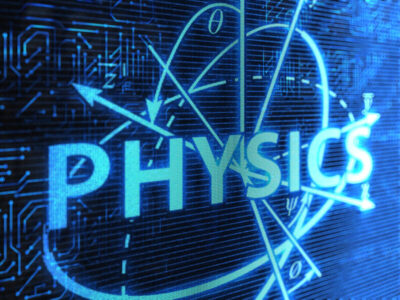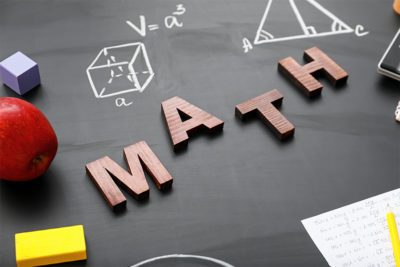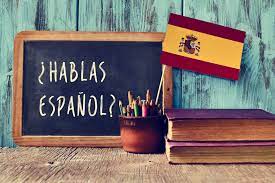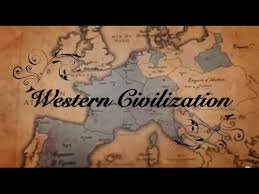Algebra I
Tutor: Amy Jenkins
This Algebra 1 course includes the following: functions and graphs, equations in one and two variables, solving systems of equations, exponents, polynomials, factoring, algebraic fractions, operations on square roots/radicals, solving quadratic equations, and inequalities.
The following link discusses why I use the Harold Jacobs text. https://youtu.be/oaCC9uF-eL4
Algebra II
Tutor: Marjorie Impraim
*Prerequisite: a C or higher in a high school level algebra course and qualification by diagnostic test.
This course is designed to build on algebraic and geometric concepts. It develops advanced algebra skills such as systems of equations, advanced polynomials, imaginary and complex numbers, quadratics, and includes the study of trigonometric functions. It also introduces matrices and their properties. The content of this course is important for students’ success on both the SAT, ACT, and college mathematics entrance exams. Students who complete Algebra II should take Pre-Calculus next.
American Government
Tutor: David Bashore
*Prerequisites: 11th – 12th grades, US History and completion of Elements of Composition & Literature
This course will examine both the foundation and function of government throughout United States history. Beginning with the Articles of Confederation and moving through the current constitutional amendments, students will gain a holistic understanding of the functions of the United States government according to the Constitution, and what makes the constitutional republic unique from other forms of government. Students will also be able to assess and analyze advantages and disadvantages to the constitutional republic form of government, compared to other forms of government around the world and throughout history. The course will conclude with students creating their own “constitution” for governance, using what they have learned over the course of the school year.
Gross Anatomy and Basic Physiology for Aspiring Artists and Visual Learners
Tutor: Renee Eugene
This course is designed to introduce basic structure and functional relationships of the human body. It is intended for students who are visual learners and have demonstrated proficiency in basic drawing techniques. Students will complete a series of learning activities that will include creating detailed, labeled anatomical drawings, medical vocabulary/etymology, readings, and assignments. The course will include interactive study creating detailed and labeled drawings, full-sized human medical skeleton, anatomy and physiology textbook, and live models.
Students will discover and understand the basic functioning of various body systems and how to promote physical health and optimal wellness across the lifespan. Body organ systems covered in this course will include the skeletal, articulations, muscular, integumentary, nervous, endocrine, cardiovascular and lymphatic, respiratory, digestive, urinary and reproductive systems.
Ancient Literature
Tutor: Dani Pettrey
An inductive study with detailed reading of ancient texts, discussion questions and writing assignments. Students will compare and contrast views of creation, heroism, and more as they learn about ancient cultures, history and archaeology through literature. The texts will include a study of Daniel, The Epic of Gilgamesh; Homer’s Odyssey; and Antigone. For high school students.
Prerequisites: English Literature 1
Fundamentals of Fine Art
Tutor: Renee Eugene
This 30 week course is designed to explore and develop the fundamentals of fine art. We will start with the basic elements of drawing, proportion, line, texture, tone, value, form, space, perspective and color theory. In the first section, drawing and composition, students will take a classical approach to rendering inorganic and organic subjects. Secondly, color will be introduced through a series of mixed media color exercises designed to help the student become aware of the deliberate color and design schemes in God’s creation all around us. In the third section, students will merge the two sections using watercolor , acrylic and pastel chalk. Each week they will draw landscapes, seascapes, still life, cartoons, graphic design and free draw. Students are required to show their work in a display at the end of the semester in the study area.
American Sign Language 1, 2 & 3
Tutor: Chelsea Hertz
We will dive into learning everyday “talk” in American Sign Language! We will try to immerse ourselves by keeping a “no-voice” environment (except on designated days). This will help us practice the language and our receptive skills and become better at charades (I promise it’ll be important later!)
We will not only focus on the language alone, but also Deaf history and culture. We will gain a basic knowledge of different forms of sign languages out there and how American Sign Language is different from those.
We will have Deaf visitors to teach on important topics, for exposure to the language and norms as well as interpreters. It will be highly encouraged to attend at least one Deaf social or event.
Biology
Tutor: Tara Young
*Prerequisite – Students should have taken Physical Science and at least concurrently be taking Algebra 1 as this is a high school course that builds on these foundations.
This course is designed to be the student’s first high school science course and is a college-prep biology course that provides a detailed introduction to the methods and concepts of general biology, heavily emphasizing the vocabulary of biology and note taking. It covers the five-kingdom classification scheme and a survey of it, some basic chemistry, microscopy, biochemistry, cellular biology, molecular and Mendelian genetics, evolution, dissection, and ecosystems. Students will also gain a strong background in the scientific experimental design: question, hypothesis, materials and methods, graphic analysis of results, research, communication, and conclusion using APA format, in text citations and a reference list.
British Literature
Tutor: Michele Harlow
This course will be a comprehensive overview of British Literature beginning with early Anglo-Saxon writings to modern. The social and historical contexts of each Era will be explored to better understand the perspective of the authors. Students will be required to critically read and evaluate a variety of selections including poetry, prose, drama, and novels. Weekly quizzes, unit tests, special projects, homework, and participation in class discussions will be used to evaluate the students’ understanding of the subject.
Chemistry
Tutor: Rachel Hansen
Prerequisites: Algebra I, Physical Science, and Biology
The chemistry course will cover fundamental topics & concepts such as the classification of matter, atomic structure, spectroscopy, chemical bonding, molecular geometry, physical change, chemical change, stoichiometry, solutions, ideal gases, acid/base chemistry, reduction/oxidation reactions, thermochemistry, thermodynamics, kinetics, and chemical equilibrium. Emphasis will be placed upon integration of mathematics to help students develop necessary skills to think as a chemist.
Class time will primarily be spent conducting many of the experiments included in the text. Some of the labs are quantitative in nature, including calculating percent yield, measuring concentration of a solution, acid/base titration, and determining the change in enthalpy for a chemical reaction. Other labs are qualitative, such as performing flame tests, examining the interference of light waves, comparing metals to nonmetals, exploring Boyle’s Law, doing litmus tests, and electroplating.
This course will help students understand how chemistry reveals the amazing design and handiwork of God.
Child and Human Development
Tutor: Theresa Berkoski
Human Growth and Development
To learn the ways humans grow and change from youth through old age, physically, cognitively, emotionally and socially. Upon completion of the course, the student will have covered the scope and sequence for an introductory Human Development course and earned one credit in Human Development. Topics covered: • Prenatal Life • The Neonate • The First Two Years • Preschool Years – Ages Two to Five • The Elementary Years • Adolescence • Young Adulthood • Middle Adulthood • Senior Adulthood. ***There will be a good deal of reading, journaling, group work and minimal testing. You must be able to work cooperatively with your peers.
Early Childhood Development
In this course, we will investigate what you need to know in order to truly love, protect and teach young children. We will be discussing: • The preschool child’s physical development • The preschool child’s cognitive development • The history and philosophies of early education • Qualities of a good teacher • Classroom skills and management • How to create lesson plans • Creating lesson plans from the theories of Montessori, Piaget, and multiple intelligence’s You will finish the course with a project and presentation. There is no universally agreed-upon definition of early childhood. For the purposes of this text, we will say that early childhood begins at age two and ends when the young person enters kindergarten. Hopefully by the end of this course, you will feel passionate to follow this important career- or at least thankful that there are those that spend their lives investing in children! Even if you don’t go into early childhood education as a career, what you learn can be used to understand your own children better someday. *** This class is heavily interactive! There will be A LOT of projects and group work. You must be able to work cooperatively with your peers and the community-especially children!!! If you do not like kids, please do NOT take this class. Additionally, you must be minimally in 9th grade to take this class. This class is ideally for students grades 9th grade and above.
College and Research
Tutor: TBD
Prerequisite: Grade of C or higher in English I or special permission from tutor
This course is new for the 2023-2024 year! In this full year, one credit, college-prep course, students will learn how to develop two important pieces of writing: the personal narrative essay in fall, and the research essay in spring.
Creative Writing
Tutor: TBD
All ages; no prerequisites
In this spring semester, half credit English or elective course, students will learn and practice eight genres of creative writing. This course is for reluctant and eager writers, and provides a safe format for offering work and receiving feedback. Pairs well with Secrets of Great Communicators for a full credit.
Drama
Tutor: Angela Germanos
In this class, students will learn acting and improvisation skills while gaining the acting and team-building skills needed to produce a show. They will be rehearsing 2 separate plays, one in the Fall and one in the Spring. $30 materials fee per student, per semester.
English 1
Tutor: TBD
Students must be 12 years old by first class; no prerequisites
In this full year, one credit course, students will learn the elements of story through short stories and the novel The Giver, they will also explore elements and style of poetry. They will master the building blocks of writing including function, style, and basic grammar. This class is the perfect foundation for English II.
English 2
Tutor: TBD
Students must be 14 years old by first class to register without completing English l; students under 14 years old must complete English I first.This class is a prerequisite for literature classes and College & Research Essay.
In this full year, one credit course, students will learn to structure and compose essays in varying formats, including: literary analysis, personal response, and
compare and contrast. They will read and respond to three works of literature: The Hiding Place (memoir), Romeo and Juliet (play), and Butterfly Yellow (novel).
Students will also explore features of poetry and other genres of writing and will learn the MLA formatting process.
General Science
Tutor: Rachel Hansen
General science is a middle school science class, and the focus is to help students gain an appreciation for the sciences and the world God has made through careful reading, classroom discussion, and hands-on experiments and activities. Topics include weather, ocean science, human anatomy, and astronomy. At the culmination of each quarter, students design and present projects that showcase a science topic that interests them and displays their knowledge through some creative means (such as a poster display, artwork, sculpture, or any number of things!) This course is designed to prepare students for high school science class and lab experiences.
Geography
Tutor: David Bashore
Geography covers more than country names and places, physical features, and a few cool, random facts. It is a series of connections between physical geography, political and economic features, and varied cultures. Most importantly, it helps us see the world through God’s eyes. Both in and out of class, students will learn deeply about all regions of the world, with focus on key strategic nations and areas of particular concern. At the end of the school year, students will create a country of their own imagination, using the information learned through the year.
Geometry
Tutor: Amy Jenkins
This course covers classic Euclidean Geometry, with an emphasis on reasoning skills through proofs and the building of an axiomatic system. Topics include: deductive reasoning, points, lines, planes, rays, angles, congruent triangles, geometric inequalities, properties of parallel lines, quadrilaterals, isometries, area, similarity, right triangles and trigonometric ratios, properties of circles, regular polygons, geometric solids, and coordinate geometry. While algebra will not be explicitly taught, algebra review problems are included in most chapters and additional (optional) asynchronous videos and problems will be provided.
The following link discusses why I use the Harold Jacobs text. https://youtu.be/oaCC9uF-eL4
Advanced Guitar
Tutor: Eddie Spuler
This course is designed for guitar students with at least two years of guitar studies and who can comfortably play chord charts, musical standards, and tablature/notation. The class will further expound on previous topics as well as implement new concepts and techniques to grow the guitarist’s skill. The course topics will include: melody construction, improvisation, extended harmony, performing experience, band participation, and more. The class will incorporate many musical standards for which the students will learn and perform at the end of each semester in the study hall.
– Students are required to provide their own instrument and expected to practice class work diligently during the week.
Beginner Guitar
Tutor: Eddie Spuler
This course is designed to be an introduction guitar class for aspiring players. The class will cover basics and fundamentals of the guitar giving each student a strong foundation for which to build their skill with the guitar. We will concentrate on topics including: dissecting the guitar, proper posture, notation, chord studies, tab comprehension, rhythm, and more. The course will culminate their studies towards performing for the school. A final concert will be performed at the end of the year in the study hall to encourage their preparation and exemplify their skill on the guitar.
– Students are required to provide their own instrument and expected to practice class work diligently during the week.
Health
Tutor: Renee Eugene
This course is designed to introduce basic concepts of health science to teenagers. Topics will be discussed and introduced from a scientific perspective; sexual attraction and gender theories beyond hormone functions and physically observable traits will not be discussed.
Course topics include:
* Physical Fitness *Nutrition basics *Physiology basics *Understanding Disease *Drugs and Medicines *Adolescence *First Aid *Hygiene and Healthcare *Healthcare Careers
Students will need a connection to the internet to access free materials in lieu of a textbook.
Intro to Computer Science
Tutor: Stephen Impraim
Introduction to Computer Science is an introductory class designed to introduce students to a high level survey of computer science topics ranging from digital logic, computer architecture, computer programming, and various other computer topics.
Intro to Theology and Apologetics
Tutor: David Bashore
Understanding both God and the Bible is not only for church leaders. Theology is for everyone! In this course, students will delve into three main ideas: bibliology, theology, and apologetics. They will discover how we got our Bible, how it was preserved through the ages, and how we today can know it to be true. They will discern who God is, the nature of humanity, and the need for a savior. Finally, they will discuss, in light of what they’ve learned, how to defend their faith when questions come calling from an unbelieving world.
Journalism 1
Tutor: Dani Pettrey
Journalism 1
Students will be introduced to the dynamic field of journalism. Students will learn reporting and writing skills and practice them with the intent of publication in various forms including print, digital, and broadcast. We’ll focus on feature writing, columns, interviews, essays, and news reporting. They will also learn a variety of essential skills including editing, creative layout, time management, research skills and collaborative projects.
For grades 7-12
No prerequisites.
Life and Earth Science
Tutor: Rachel Hansen
Prerequisites: Grade 9 and up
This high school level lab course is focused on learning how to be a good steward of the world God made and developing good science skills. We will study 4 main topics: ecology, rocks and minerals, botany, and ornithology (bird study). Students can expect classes to include time spent reviewing work done at home as well as lab work including soil and water testing, learning about invasive and native plants, plant dissection and identification, and density labs. We will frequently spend some class time outdoors. The main books used will be “Ecology” by Tom Hennigan and Jean Lightner; “Botany” by Ellen J. McHenry; “Rocks and Dirt” by Ellen J. McHenry; and course material from Cornell School of Ornithology. Extra materials will be distributed by the tutor.
Music History
Tutor: Becky Case
Prerequisites: Students in grade 10 and above and completion of Elements of Composition & Literature or equivalent
This course is an opportunity for students to learn about composers, instruments, and musical
styles from a variety of eras. The course will mostly focus on European music of the Middle
Ages and the Renaissance, Baroque, Classical, Romantic, and Modern eras, although some
other cultures and locations will be discussed. After their weekly reading, students will have the
opportunity to actively listen to a wide variety of musical examples from the composer or period
being studied and analyze or respond artistically to what they have experienced.
CLASS STRUCTURE
Each week’s 1.5 hour class at Cornerstone Tutorial will be spent reviewing historical concepts
from the course reading as well as actively listening to music from a variety of time periods and
styles. Hands-on activities such as using and creating listening maps, creating art in response to
musical examples, and creating timelines will be incorporated. There will be homework in the
form of reading and written tests to be completed during the week. Each student will be
responsible for one class presentation on a composer of their choice and one paper on a
musical time period of their choice over the course of the school year.
Music Theory
Tutor: Becky Case
Prerequisites: Students in grades 9 and above with prior or current experience in instrumental or vocal performance highly suggested
This course is an opportunity for students to enhance their music performance skills by learning
how to read and write music and further develop their musical ear through sight reading,
notation, and ear training. Over the course of the year, students will learn to perform a variety of
rhythmic and melodic examples at varying levels of difficulty, identify intervals by ear and sight,
and compose in a variety of keys. As the year progresses, students may learn more about scale
types, chord types, chord inversions, and cadences as they demonstrate readiness for these
more advanced topics.
CLASS STRUCTURE
Each week’s 1.5 hour class at Cornerstone Tutorial will be spent on theory instruction, sight
reading practice, and ear training. We will use a variety of materials, instruments, and methods
to make our time in class fun! Students are expected to participate fully in classroom activities,
which will take a highly hands-on approach. There will be homework, composition assignments,
and written tests to be completed at home during the week.
Photography & Yearbook
Tutor: Laura Wiegmann
Fundamentals of Digital Photography –
This course teaches the students how to use a Digital SLR camera. There will be discussion of different modes of the camera, including Program, Aperture and Shutter priority but mainly focuses on the manipulation of ISO, Aperture and Shutter in the fully Manual mode. The class concentrates on getting the students to take clear, focused, white balanced images, and explores different types of photos, including close ups, photos utilizing movement of the subject, and topics like adjusting the background and using light in creative ways. Finally, they will learn how to use an adjustable flash to their advantage. The majority of their work will not be printed, as we use Google drive with folders to share weekly assignments, but the goal is to print a few and have a “gallery opening” to show off the best work.
Digital Photography Yearbook –
The students start out learning basic editing skills with their computer’s editing software, retouching those photos that will go into the yearbook and will expose them to what Photoshop can do. They will learn the basics of putting together a yearbook, including page layouts, editing, and even sending the book to print. The students photograph pictures of Cornerstone students, classes, and events which then become a part of the Cornerstone Yearbook. The class uses Lumapix software so the students will need to have the Lumapix subscription.
The class culminates with the students displaying their best photos, and also presenting slide shows of class projects in addition to producing the yearbook. Since Laura is an independent, professional photographer, she can give relevant input on their work.
Photo Editing
Tutor: Laura Wiegmann
Photo Editing will cover the basics of Lightroom and Photoshop, and students will not only help with editing photos for yearbook, but will also be able to bring their own camera images and learn to enhance them through cropping, lighting and other aspects that will make a better finished photo. This class is NOT for phone photography, and there is a general prerequisite that the student has taken or is taking Photography and Yearbook. If a student uses a camera on his or her own, and has experience, exceptions may be made by the tutor.
Physical Science
Tutor: Myra Russell
Prerequisite- It is suggested (although, not a requirement) that students have completed a full year science course like general or life science as well as pre-algebra.
Course Description – This course is an introduction to the physical sciences. In the chemistry modules students will learn what matter is, how it is classified, atomic structure, the periodic table, chemical bonds and chemical reactions. In the physics modules they will learn about motion, forces, energy, waves, sound, light, electricity and magnetism. and some earth and space science. In the earth and space modules, students will learn about the earth’s structure and atmosphere. Students will conduct experiments using the experimental method to better understand the concepts we are studying. Expectations and Goals – We will cover a module every 2 weeks. Daily assignments of reading and answering questions will be given on a syllabus and email to be completed for the next class. Experiments will be conducted in class, with lab reports completed in class and at home. The class will consist of reviewing the assigned reading and questions for half
the class and conducting labs for the rest of class. Tests will be taken at home and proctored by the parents.
Physics
Tutor: Myra Russell
“Whatever is in motion must be put in motion by another. If that by which it is put in motion be itself put in motion, then this also must needs be put in motion by another, and that by another again. But this cannot go on to infinity, because then there would be no first mover, and, consequently, no other mover; seeing that subsequent movers move only inasmuch as they are put in motion by the first mover; as the staff moves only because it is put in motion by the hand. Therefore it is necessary to arrive at a first mover, put in motion by no other; and this everyone understands to be God.” THOMAS AQUINAS, Summa Theologica
A Pre-Test will be given before admittance to the class.
This Physics course focuses on the study of motion. Thomas Aquinas states above that motion cannot occur without a mover, and that “first mover” is God. We have the wonderful opportunity to learn how the world God created operates around us by studying Physics. This is a college prep Physics course designed for the student who is leaning toward a college/career experience in the Sciences. They will have completed Algebra I, Geometry, and Chemistry. The student should have had an introduction to basic Trigonometry (sine, cosine, tangent and their inverses). The student should have a knowledge of the Scientific Method and Lab Procedures. There is a heavy emphasis on Vector Analysis in both one and two dimensions. Other topics include: Newton’s Laws, Gravity, Periodic Motion, Work and Energy, Waves, Optics, and Electricity.
A typical class includes discussing the assigned reading and reviewing the assigned problems. We also perform labs to demonstrate or explain the concepts currently being studied. Students are required to come prepared for class and actively participate in working problems on the board and group lab work. Tests are given at home every two weeks and proctored by parents.
Pre-Algebra
Tutor: Marjorie Impraim
Are you concerned about being able to prepare your kids for Algebra and the higher math disciplines? This 30-week Pre-Algebra course will give your child the building blocks to be prepared. We cover principles from early middle school math in the first few weeks and then move into the Pre-Algebra book by BJU Press. It eases the transition from arithmetic to algebra.
We will then cover algebraic expressions and linear equations as they are applied throughout a thorough review of operations on integers, fractions, decimals, percents, radicals and more will be included. Introductory word problems with linear equations will be explored. Scriptural truths are peppered throughout the text as students are being taught that God’s truths are evident in math and science.
Pre-Calculus
Tutor: Bill Swick
Pre-calculus aims to develop a deep conceptual understanding of functions.
Throughout this course, students develop and hone high-level symbolic manipulation skills for success in future mathematics courses. They will tackle challenging problems that require creativity and persistence to solve. Students will learn that functions and their compositions, inverses, and transformations are understood through graphical, numerical, verbal, and analytical representations, which reveal different attributes of the functions and are useful for solving problems in mathematical and applied contexts.
General Topics:
* Intermediate Algebra: Conic Sections, Complex Numbers, Exponents and Logarithms, Sequences and Series *Functions: Graphing, Transformations, Composition, Inverse *Trigonometry: Graphs, Identities, Advanced Triangle Geometry
Method: During Monday classes, I will lead students through engaging math challenges, and the students will have opportunities to work together to creatively solve problems. Weekly problem sets will be assigned via the online platform Alcumus: https://artofproblemsolving.com/alcumus
Psychology
Tutor: Theresa Berkoski
- At the completion of this course, the student will be able to demonstrate a basic knowledge of the topics of Psychology by covering an average high school scope and sequence. Also, students will learn some basics of ways to help a friend during difficult times.
- Student will use syllabus and textbook to fulfill their Psychology studies.
- Student will engage reading and interacting with the text, homework, group activities, bi-weekly journals, and additional meaningful activities.
Topics covered:
* The Brain and How it Works *Perception *Genetics *Learning *History of Psychology (Ancient to Pre-modern Times ) *History of Psychology into Modern Times *Communication *Needs, wants and Motivation *Looking at Personality & Theory *Sleep & Dreams *Abnormal Psychology *Crisis Intervention *Psychological Testing *Forensics *Christian Counseling *Understanding Research & Statistics *Careers in Psychology
Spanish 1 & 2
Tutor: Alejandra Zuñiga
Prerequisite: Spanish 2 requires the successful completion of Spanish 1 with a grade of C or better.
Spanish 1 – This course introduces students to effective strategies for beginning Spanish language learning, and to various aspects of Spanish speaking culture. It focuses on the four basic language skills: listening comprehension, speaking, reading, and writing. Students will be introduced to common vocabulary, phrases, and concepts necessary for daily interpersonal interaction. This course encourages interpersonal communication through speaking and writing by providing opportunities to make and respond to basic requests and questions, to understand and use appropriate greetings and forms of address, to participate in brief guided conversations on familiar topics, and to write short passages with guidance.
Spanish 2 – This course is designed to review and build upon material presented in Spanish 1. The activities provided are designed to increase the student’s proficiency in the four basic skills: listening comprehension, speaking, reading, and writing. Students will increase their knowledge of Spanish grammatical structures and vocabulary, improving their ability to freely communicate ideas using more advanced tenses and awareness of the Spanish culture through more advanced reading, writing, and listening activities. There will be expanded opportunities for practice speaking.
Secrets of Great Communicators
Tutor: TBD
All ages; no prerequisites
In this fall semester, half credit English or elective course, students will learn about famous orators and their messages, how to discover the messages God has planted in them, and write and orally present four speeches for review. This class is for reluctant and the enthusiastic speakers! Pairs well with Creative Writing for a full credit.
US History
Tutor: David Bashore
*Prerequisites: 10th grade and up, completion of Cornerstone Elements of Composition and Literature/English 2.
This course will examine our nation’s history from colonial times to the present day, with primary emphasis on the 20th and 21st centuries. Main events of focus include the American Revolution, the Civil War, both World Wars, the Cold War, the Civil Rights movement. Through a variety of projects and assignments, students will develop critical thinking and analysis skills that will be important both in college and in society at large. By the end of the course, students will understand the concepts of man’s desire for liberty and desire to rule himself apart from God, the decay of society as a result, and where the idea of the United States both fits in those two concepts and has changed over the course of the last 245 years.
Western Civilization
Tutor: David Bashore
Western Civilization weaves the political, economic, religious, intellectual, cultural, and military aspects of history into a gripping story that is as memorable as it is instructive. The student will be exposed to primary source documents that are the foundation for the historical analysis you find in the textbook and other secondary source materials. These documents include letters, poems, songs, and pictures that enliven the past. Through class discussion; study, history becomes relatable to the modern student. Students will apply knowledge of western civilization to various creative projects.
World Music
Tutor: Becky Case
This course is an opportunity for students to perform, experience, and identify music from
around the world. Working as a team, students will participate in a hands-on approach to
studying the music from various countries in Africa and the Caribbean. Using drums and
auxiliary percussion, students will explore performance styles such as question and answer,
polyrhythm, and improvisation. Students will also spend time actively listening to European
music across various styles and periods. Using and creating aides such as listening maps will
help students identify a range of instruments and themes as well as key musical components
such as tonality, dynamics, form, tempo, pitch, and rhythm.
